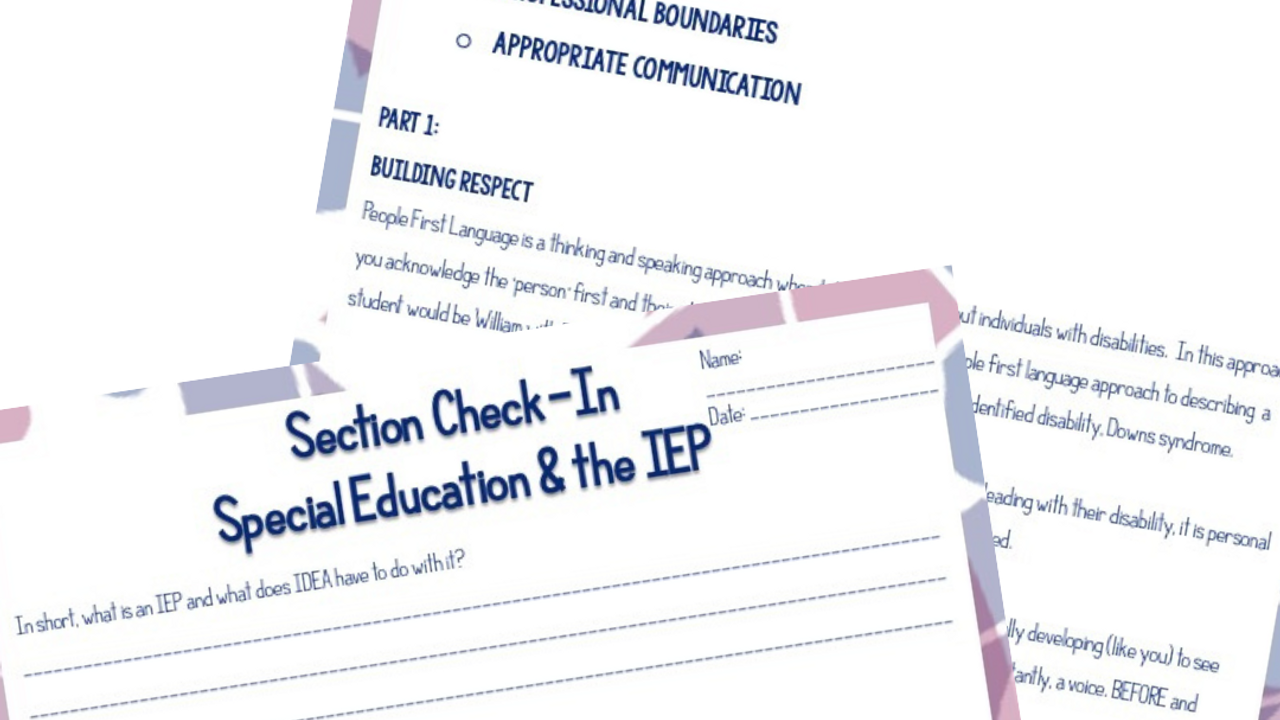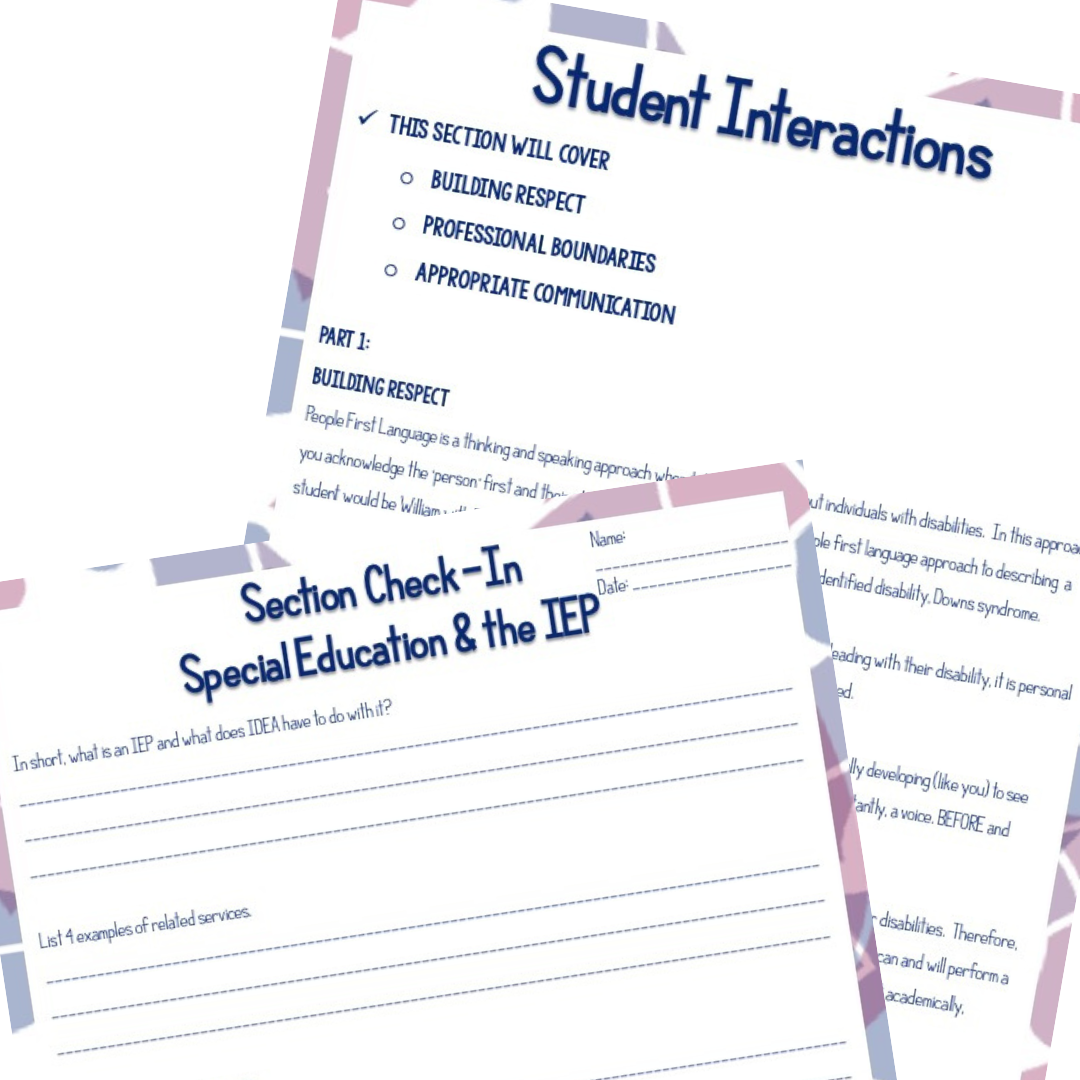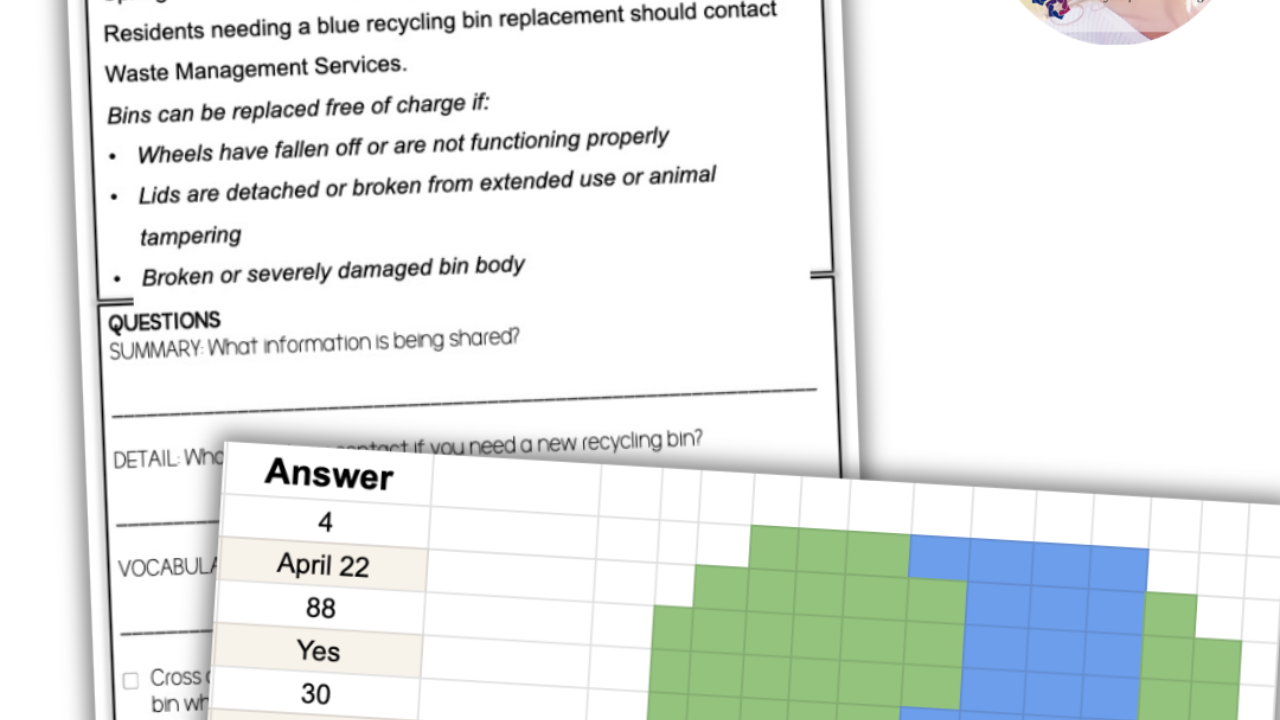Special Education Paraprofessional Handbook and Trainings
Oct 17, 2022
Every school year brings a lot of excitement and overwhelm, as well as new paraprofessionals and support staff to train. While we may have the best intentions to provide hands-on training for the newest classroom staff, schedules may not always allow this.
Give your special education classroom paraprofessionals the training they want and need!
Below is a list of paid and free special education paraprofessional training resources that you could utilize to give your staff the support they need to become more comfortable in their job.
1. Paraprofessional Handbook Training Manual ($15)
After working with so many special education paraprofessionals and support staff ranging from brand new to veteran, my experience informed me what a quality, valuable resource to train paraprofessionals really needed (and what it didn’t).
Assistant teacher manuals, specifically those for training paraprofessionals in high school and transition settings, should include a review of the IEP as so much of what special education teachers and related service providers reference is the student's IEP. Quality training materials should also include appropriate student interaction, supporting students in the community, and supporting teachers, all of which are included in this training handbook.
The Paraprofessional Training Manual has 14 different sections, spanning from the basics of special education through job coaching and toileting support, making it an effective training resource.
Topics Covered:
- Special Education & the IEP
- Supporting classroom teachers
- Supporting students
- Interacting with students
- Data collection
- Communication
- Behavior
- Sensory needs
- Community outings and health safety
- Student equipment (customizable)
- Emergency/Weather drill plans (customizable)
- Job coaching for vocational education
- Toileting supports
- Additional information (customizable)
Resource Perks:
- Print and go! Zero prep for educators
- Comprehensive content
- 5 Question check-in after each section
- 12 Hypothetical scenarios for team members to think through
Print and go: The manual can be used immediately and would pair nicely with building and district staff professional documents as part of a larger paraprofessional training binder
Comprehensive content: The manual includes reading, followed by reflection questions, and then hypothetical scenarios covering both a broad and deep review of key topics most paraprofessionals would want and need to know about.
5 Question check-in after each section: Paraprofessional handbooks can be more than just a sit-and-get resource, and more interactive, engaging training manuals will prove to be more meaningful in the long run (see '12 Hypothetical scenarios' below). After each section is a 5-question check-in, which can be completed as independent work or part of a group discussion. The questions encourage the school staff member to re-read and reflect on the important topics and information shared in the section.
12 Hypothetical scenarios: What makes this so valuable as professional development for both veteran and newer staff in paraprofessional roles is the 5 questions at the end of each section that encourage the staff member to reflect on their learning. It’s a great way for you to hold them accountable to the reading while also seeing what they gleaned from the topic.
Personally, my favorite feature of the manual is the hypothetical situations at the end of the manual. While you can never prepare a support staff member for every situation they will be in, it is helpful to practice how to handle common scenarios in a no-risk setting. This is a perfect way for staff to really think through how they would handle different scenarios, and it allows you, as the lead teacher, to help guide them in their thinking and problem-solving so they can handle a variety of situations with confidence.
For example, one of the hypothetical scenarios asks support staff how they would handle a student who lying about using their cell phone for classroom purposes and doesn't put away their cell phone after being asked. Using the paraprofessional handbook as the catalyst to think through, talk through, or revisit very common student scenarios can help build confidence in paraprofessionals as they enter different learning settings. Each para's work style will be different, but a group discussion of how to best handle a situation helps to establish clear classroom expectations across all support staff. This is how the right training benefits paraprofessionals and students both in the classroom and community more positively to consistent expectations.
Check out the Paraprofessional Training Manual to support new and returning staff during your next back-to-school season.

*This resource is cost per educator, so 1 teacher could use it to training the 5 support staff who directly support their students, however multiple licenses (offered at a discount) would need to be purchased to train paraprofessionals across entire programs or buildings.
2. Virginia Commonwealth University PARAPro Project (FREE)
While this course was designed specifically for paraprofessionals working in Virginia schools, the training covers various topics and is accessible to everyone (big thanks, VCU).
According to the website, the training will take about 20 hours, and participants need to register for upcoming sessions. Check their website for upcoming sessions and see if the training calendar aligns nicely with your support staff’s current schedule.
3. Google Level 1 Certification Training (FREE)
If your school uses Google Suite products like Docs, Forms, Sheets, Slides, or Gmail, this is great training for teaching assistants who are less confident on the computer. With a variety of resource types, including videos, visuals, and quizzes, support staff can work through the modules at their own pace.
The training is designed to prepare learners to become Google Level 1 certified, but your staff does not need to take the certification test to benefit from the training.
The Google Level 1 Certification Training would be great for support staff who want to take the lead in creating different materials and resources, such as editable Google Docs pages, classroom forms, and data sheets, and increase their responsibility by managing platforms like Google Classroom (a digital classroom community program).
In my experience, the time to complete the modules was much less than estimated, but I was also quite comfortable with the material.
All staff are lifelong learners, so use the aforementioned resources to make your support staff feel both knowledgeable and confident in their role!





















